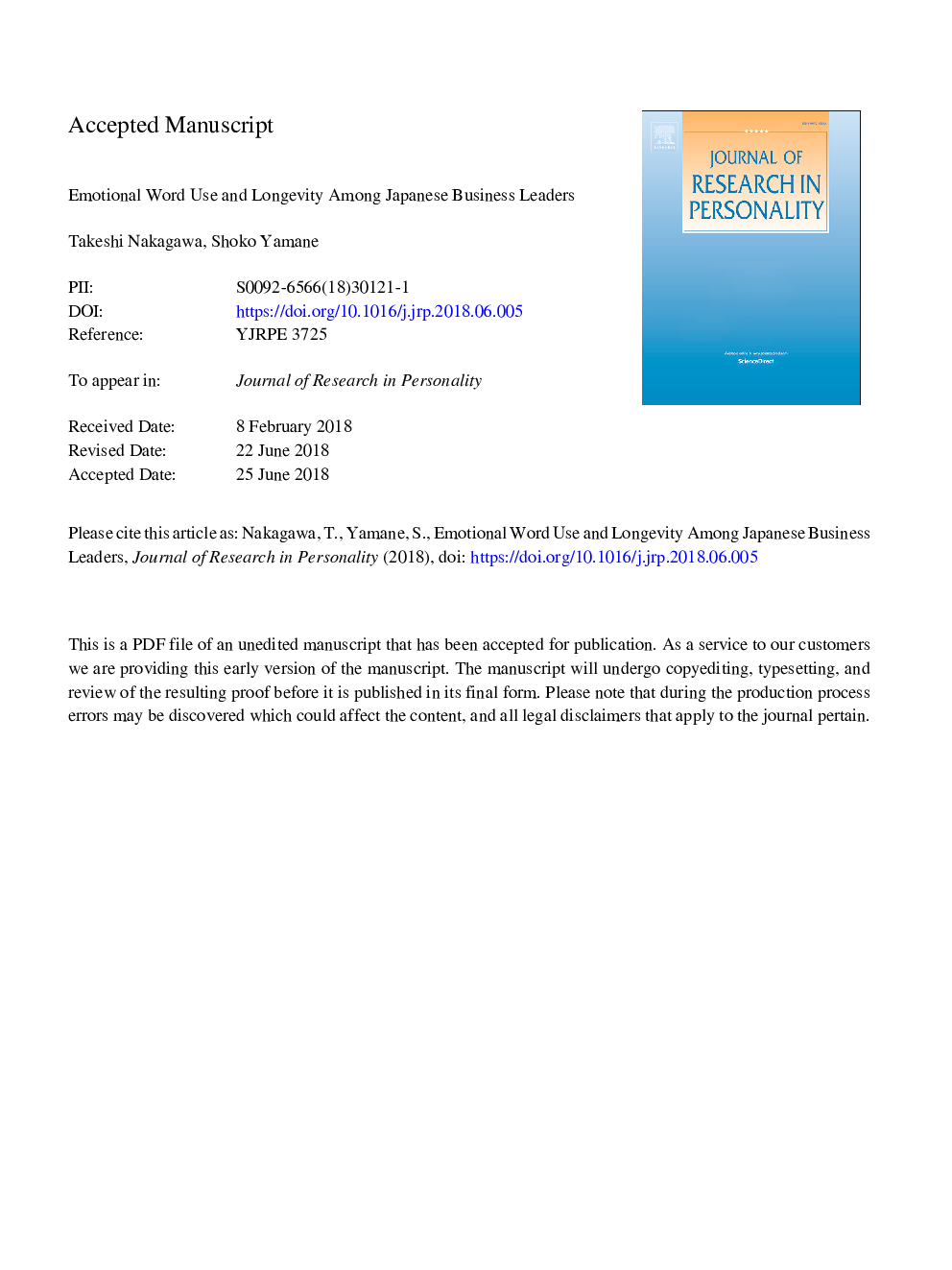| Article ID | Journal | Published Year | Pages | File Type |
|---|---|---|---|---|
| 7326325 | Journal of Research in Personality | 2018 | 20 Pages |
Abstract
Prior research suggests that positive emotions contribute to health and longevity. However, evidence in East Asia, where emotional expression can be maladaptive to disrupt social harmony, remains sparse. We examined autobiographies of 243 Japanese male business leaders to determine whether emotional words used in writing was associated with longevity. In each autobiography, emotional words were identified and the percentages of emotional words were calculated separated by valence (positive versus negative). As a results, either positive or negative emotions did not predict longevity, after controlling for year of publication, year of birth, education, and self-reported illness in autobiography. Our findings did not find beneficial effects of the expression of positive emotions on longevity. Possible explanations for the null results were discussed.
Related Topics
Life Sciences
Neuroscience
Behavioral Neuroscience
Authors
Takeshi Nakagawa, Shoko Yamane,
